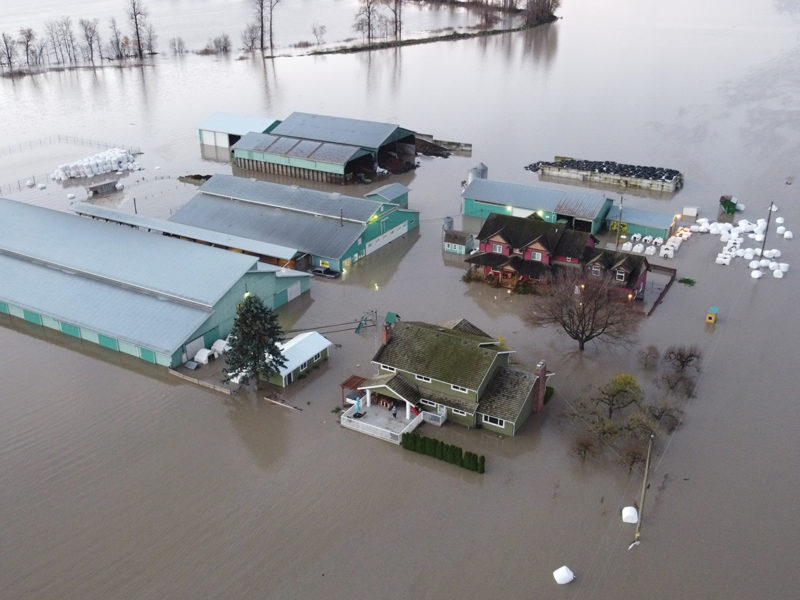Tough negotiations have delivered BC farmers a landmark recovery package that promises to help farmers recover from catastrophic flooding and landslides last November.
The provincial and federal agriculture ministers have combined two relief programs to secure $228 million in funding under what’s billed as the “2021 Flood Recovery Program for Food Security.” Delivered through AgriRecovery, it taps some of the $5 billion in federal disaster financial assistance to increase the scope beyond past programs, such as the 2021 wildfire and drought recovery program valued at $20 million.
“This program will be … leveraging the federal government’s AgriRecovery framework and Disaster Financial Assistance Arrangements,” said federal agriculture minister Marie-Claude Bibeau.
She also encouraged farmers to sign up for AgriStability and take advantage of expanded advance payment provisions. Growers with late season crops may also be able to tap crop insurance.
“I encourage producers to make full use of all the tools available,” she said.
AgriRecovery funding will cover extraordinary costs – pegged at $285 million by government, in consultation with industry – not covered by other government programs, private insurers or recovery programs delivered by industry associations and charitable organizations such as Red Cross.
The funding promises to benefit a greater number of small producers as well as the large livestock producers whose gross revenues typically prevent them from accessing disaster assistance.
“They’re able to cast the net a bit wider to the people who were really impacted. A lot of them were really being cut out,” says BC Agriculture Council executive director Danielle Synotte. “The benefit of this approach is that they’re reducing eligibility barriers. There’s a higher compensation rate, and they’ve really alleviated some of the administrative burden.”
But not all small producers agree, noting that provincial staff still haven’t been in touch with them
“We haven’t had direct contact with anyone from government,” says Julia Smith, a rancher and community organizer in Merritt who heads the Small-Scale Meat Producers Association. “Is it too much to ask for a little communication?”
Spences Bridge cattle rancher TJ Walkem says AgriRecovery funding is a drop in the bucket after the Nicola River washed away land, water pump installations, out buildings and a ranch house.
Walkem has spent $100,000 to stabilize the riverbank to prevent further erosion in advance of the spring freshet, and an initial request for funding through the Thompson Nicola Regional District Emergency Operations Center hasn’t been acknowledged.
“It’s been a very slow, numbing process, like pulling teeth,” he says. “Others that I talk to say it’s the same.”
BC agriculture minister Lana Popham says any BC producer who suffered losses as a result of the November rains will be eligible for funding, but Walkem is skeptical.
“I’m really, really worried the Fraser Valley is going to overshadow anybody up here,” he says. “[AgriRecovery is] focused on those huge food producers and not someone with 100 head of cows. I’m worried that the Nicola Valley will fall through the cracks.”
With files from Tom Walker


 Farm workforce shortfall
Farm workforce shortfall